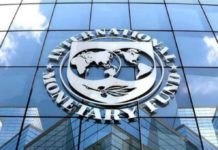Finance Minister, Ken Ofori-Atta, has said with a stable political climate, sustained macroeconomic indicators, an advantageous geographical positioning, and strengthened local banks, the country can become an international financial centre, in sub-Saharan Africa.
“There is an opening for an international financial services centre in sub-Saharan Africa and north of South Africa and we have every opportunity to do that. Let us put our heads together and transform the country.
For Ghana, in Africa, we are on a great time zone and there is a natural physiology which, in my mind, makes the country a very interesting place to be in and at the same time, a pillar of stability in Africa such that such types of attractions [international financial services centre] can occur,” he said.
Speaking to bankers at the Ghana Association of Bankers (GAB) annual general meeting in Accra, Mr. Ofori-Atta called for the support of all and sundry in achieving the dream.
The Singaporean model
The Finance Minister, in stressing the need for Ghana to become a financial powerhouse, cited how Singapore became a global financial hub in South East Asia, after its separation from Malaysia in 1965, when it had only manufacturing and no natural resources.
He explained that their leader at the time, Lee Kwan Yew, saw an opportunity in the global financial order, where Singapore would become the last keg in a 24-hour global financial trading system, and took it with the help of experts, strict regulation, rigorous supervision and the strengthening of the local banks.
Today, Singapore is one of the world’s best run economies and has seen it move from a third world country with a GDP of US$516million in 1965 to a developed economy with a GDP of almost US$300billion currently with a Central Provident Fund which has undergirded growth and economic prosperity.
Meanwhile in Ghana, GDP, which was higher than Singapore’s at about US$10billion in 1965, currently stands at US$40billion, which is significantly below the heights of Singapore currently.
Local banks and incentives to draw in global players
In order to make it possible for Ghana to become the international financial services centre it deserves, Mr. Ofori-Atta noted that there is the need for a strengthened local banking system so they can play a major role.
He assured that, in three weeks, the central bank will announce a substantial increment in the minimum capital requirements of the banks, as one of many moves to position Ghana as an international financial services centre.
“There is also a clear indication that we need some five or so well capitalised indigenous banks so that we have a system that is well represented.
The challenge also is why do we have our foreign reserves managed by outsiders and then we go to the Eurobond market to borrow the same money? How do we cultivate the banking institutions locally, who will have the capacity to be able to able to manage some of those foreign reserves?
The end game is, can we create a Ghana that is really a financial services centre? I believe we can and we have to put our minds to it,” he told the bankers.
He mooted tax incentives that will lure global financial players to establish in Ghana and help propel the industrialisation plans of the government to fruition.
“My thought is, if these new realities come into being, how do we ensure that you have a critical mass of Ghanaian banks to be a part of that and have the capital requirements?
Also what incentives do we give even as the capital requirements are pronounced to encourage mergers and consolidations because when that happens, there are certain things that will be available for banks to participate,” he said.
Central Bank’s endorsement
Governor of the central bank, Dr. Ernest Addison, described the plan as one that seeks to “have banks that can play a transformational role”, adding that “it is a vision that sits well with what we are trying to do with our move to strengthen the banking sector.”
He explained that Ghana cannot have an international financial services centre with weak banks that have weak capital, thus, the issue of disclosure requirements expected of banks under the new governance regulations are very key within that international financial services framework.
He added that for a successful implementation of the plan, the macroeconomic environment has to be an engaging one and the work done this year to see the significant improvement where inflation has come down and the exchange rate has been stable must be sustained in order to underpin that financial services centre.
Bankers’ view
The President of the Ghana Association of Bankers (GAB), Alhassan Andani, lauded the move to make Ghana an international financial services centre, and assured of preparedness of the banking sector to take advantage of emerging opportunities.
“This is a very deep and far sighted international services centre plan that the minister has laid out. As an association, we will work towards it and make sure we are ready and we will fully cooperate in making Ghana an international financial services centre south of the Sahara and north of Johannesburg,” he said.
“There is an opening for an international financial services centre in sub-Saharan Africa and north of South Africa and we have every opportunity to do that. Let us put our heads together and transform the country.
For Ghana, in Africa, we are on a great time zone and there is a natural physiology which, in my mind, makes the country a very interesting place to be in and at the same time, a pillar of stability in Africa such that such types of attractions [international financial services centre] can occur,” he said.
Speaking to bankers at the Ghana Association of Bankers (GAB) annual general meeting in Accra, Mr. Ofori-Atta called for the support of all and sundry in achieving the dream.
The Singaporean model
The Finance Minister, in stressing the need for Ghana to become a financial powerhouse, cited how Singapore became a global financial hub in South East Asia, after its separation from Malaysia in 1965, when it had only manufacturing and no natural resources.
He explained that their leader at the time, Lee Kwan Yew, saw an opportunity in the global financial order, where Singapore would become the last keg in a 24-hour global financial trading system, and took it with the help of experts, strict regulation, rigorous supervision and the strengthening of the local banks.
Today, Singapore is one of the world’s best run economies and has seen it move from a third world country with a GDP of US$516million in 1965 to a developed economy with a GDP of almost US$300billion currently with a Central Provident Fund which has undergirded growth and economic prosperity.
Meanwhile in Ghana, GDP, which was higher than Singapore’s at about US$10billion in 1965, currently stands at US$40billion, which is significantly below the heights of Singapore currently.
Local banks and incentives to draw in global players
In order to make it possible for Ghana to become the international financial services centre it deserves, Mr. Ofori-Atta noted that there is the need for a strengthened local banking system so they can play a major role.
He assured that, in three weeks, the central bank will announce a substantial increment in the minimum capital requirements of the banks, as one of many moves to position Ghana as an international financial services centre.
“There is also a clear indication that we need some five or so well capitalised indigenous banks so that we have a system that is well represented.
The challenge also is why do we have our foreign reserves managed by outsiders and then we go to the Eurobond market to borrow the same money? How do we cultivate the banking institutions locally, who will have the capacity to be able to able to manage some of those foreign reserves?
The end game is, can we create a Ghana that is really a financial services centre? I believe we can and we have to put our minds to it,” he told the bankers.
He mooted tax incentives that will lure global financial players to establish in Ghana and help propel the industrialisation plans of the government to fruition.
“My thought is, if these new realities come into being, how do we ensure that you have a critical mass of Ghanaian banks to be a part of that and have the capital requirements?
Also what incentives do we give even as the capital requirements are pronounced to encourage mergers and consolidations because when that happens, there are certain things that will be available for banks to participate,” he said.
Central Bank’s endorsement
Governor of the central bank, Dr. Ernest Addison, described the plan as one that seeks to “have banks that can play a transformational role”, adding that “it is a vision that sits well with what we are trying to do with our move to strengthen the banking sector.”
He explained that Ghana cannot have an international financial services centre with weak banks that have weak capital, thus, the issue of disclosure requirements expected of banks under the new governance regulations are very key within that international financial services framework.
He added that for a successful implementation of the plan, the macroeconomic environment has to be an engaging one and the work done this year to see the significant improvement where inflation has come down and the exchange rate has been stable must be sustained in order to underpin that financial services centre.
Bankers’ view
The President of the Ghana Association of Bankers (GAB), Alhassan Andani, lauded the move to make Ghana an international financial services centre, and assured of preparedness of the banking sector to take advantage of emerging opportunities.
“This is a very deep and far sighted international services centre plan that the minister has laid out. As an association, we will work towards it and make sure we are ready and we will fully cooperate in making Ghana an international financial services centre south of the Sahara and north of Johannesburg,” he said.






